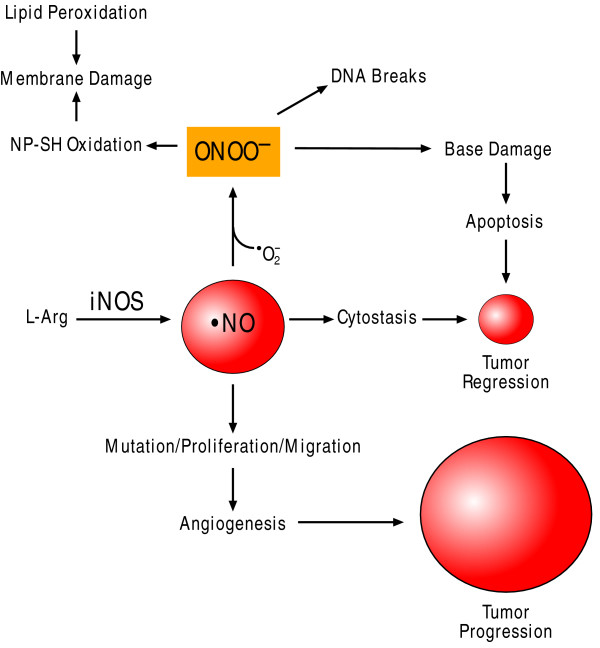Figure 1.
Growth and inhibitory effects of free radicals on tumors. The unchecked production of hydroxyl radicals and other reactive oxygen species (ROS) leads to protein and lipid peroxidation as well as DNA damage which increase mutation load resulting in either tumor regression or tumor progression. In response to intracellular protozoa, classically-activated macrophages produce nitric oxide (NO) from arginine (L-arg) using the iNOS enzyme. H.pylori disinhibits iNOS in the gastric mucosa by attenuating the expression of HSP70 and HSP27. Tumor-associated macrophages (TAM) are not toxic to tumor cells because of their limited production of NO.

